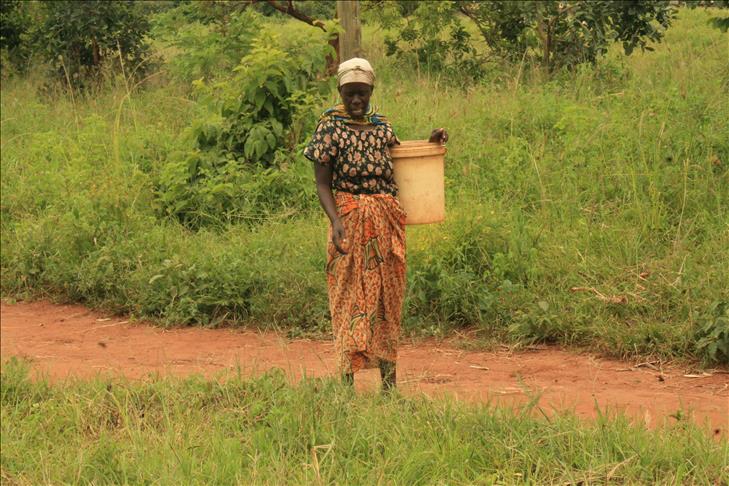
By Francis Maingaila
LUSAKA
The Zambian government is planning to ban tribal 'sexual cleansing' rituals, dismissing them as a harmful cultural practice that contributes to the spread of HIV/AIDS.
"In order to curb the rampant spread of HIV, which is spread mainly by sexual cleansing, we have called for a societal review and change of traditions," Chief and Traditional Affairs Minister Nkandu Luo told Anadolu Agency in an exclusive interview.
"After putting all logistics together, my government will announce the ban on sexual cleansing," she said without giving a clear date for the promised ban.
Luo explained that, according to traditional customs, surviving widows are considered "unclean" and must undergo sexual cleansing rituals after the death of their husbands.
"The practice is thought to purify a woman and her home after her husband's death," she explained. "Failure to carry out purification rites is thought to bring bad luck in terms of unemployment, illness and death."
"Those who refuse to have sex cleansing are thought to be cursed and are detested by the community," Luo added. "Out of fear, surviving spouses have no option but to submit to the ritual."
She said widows who submitted to the rituals were obliged to have unprotected sex.
"Sometimes, they are forced to have sex with men whose HIV/AIDS status is unknown," said Luo. "A widow who is HIV-negative faces the risk of contracting the virus from the man who inherits her."
"In other cases, a widow who has contracted HIV from her late husband will transmit the disease to her inheritor when she is forced to have sex with him," she explained.
Statistics obtained from Zambia's Central Statistical Office show that over one million Zambians are currently living with HIV, with an HIV prevalence rate of 30 percent among people aged between 15 and 49.
The figures also show that women between the ages of 25 and 34 were at much greater risk of infection than young men of the same age group.
The primary modes of HIV transmission are through heterosexual sex.
Vicious circle
The minister noted that, in light of of common polygamous practices and extramarital affairs in Zambia, sexual cleansing had the potential to set off a chain of endless infections.
"Polygamy, like sex cleansing, is documented as a risk factor on its own," she said, noting that a man could transmit the virus to his wives, who could in turn infect others if they are widowed and inherited.
"It is therefore proper that this practice is outlawed and, as government, we are doing everything possible to ensure that such traditions are wiped out," Luo told AA.
She also cited a tendency among polygamous men to engage in extramarital affairs, which increases the risk of infecting others.
"Typically, in rural communities, the woman will not even complain when the husband brings another woman home," said Luo.
"Women have been tutored to accept that husbands are going to have extramarital affairs," she added.
Rodrick Vhongo, the head of Zambia's Traditional Healers Association, said there were "alternative" purification rites other than the more popular sexual cleansing rituals.
"One of them requires sacrificing an animal," he told AA. "Unfortunately, animals are too costly. For this reason, people opt for the sexual relations."
"Since we are in this situation, we have no option but to go for alternative sacrifices," Vhongo asserted.
englishnews@aa.com.tr
Anadolu Agency website contains only a portion of the news stories offered to subscribers in the AA News Broadcasting System (HAS), and in summarized form. Please contact us for subscription options.


